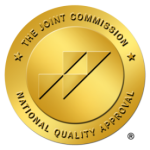Understanding the Opioid Epidemic
Over the last few decades the United States has witnessed a concerning rise in prescription drug misuse, particularly with opioids. What started as a well-intentioned effort to treat pain has morphed into a national crisis. But how did we get here, and what can we do about making significant changes with the current epidemic?
A Brief History of Opioids
Opioids are a class of drugs derived from the opium poppy plant. Historically, they’ve been used for pain relief for centuries. Morphine, codeine, and heroin are all examples. By the late 20th century, pharmaceutical companies began promoting newer opioids, like OxyContin and Vicodin, as effective and non-addictive pain management solutions.
The Perfect Storm: Over-Prescription Meets Addictive Potential
There was a shift in the 90’s where a push to treat pain more aggressively was encouraged. Pharmaceutical companies assured the medical community that patients would not become addicted to prescription opioid pain relievers. Trusting these assurances, healthcare providers began to prescribe them at higher rates. There has been quite a bit of controversy in recent years regarding this, with various documentaries and tv series exploiting the pharmaceutical industry as a whole in regard to the opioid crisis.
Over the last 3 decades it has become clear that these drugs carry a significant risk of addiction. As prescriptions soared, so did misuse, addiction rates, and overdoses. Many who were introduced to opioids through a prescription transitioned to more potent and dangerous forms, like heroin, when their prescriptions ran out or became too expensive.
The Devastating Consequences of Prescription Drug Addiction
The opioid epidemic has had far-reaching consequences:
- Overdoses: Opioid overdoses became a leading cause of accidental death in the U.S.
- Economic Impact: The epidemic has strained healthcare, legal, and social systems, resulting in billions of dollars in economic burden.
- Family and Social Impact: Families have been torn apart, with many children entering the foster care system due to parental drug misuse.
Addressing the Crisis
Recognizing the gravity of the situation, various strategies have been employed to counter the epidemic:
- Prescription Monitoring: Many states have introduced Prescription Drug Monitoring Programs (PDMPs) to track opioid prescriptions and identify suspicious patterns.
- Treatment and Rehab: Efforts have been redoubled to provide comprehensive treatment options, ranging from detox to cognitive-behavioral therapy.
- Public Awareness: National campaigns aim to educate the public about the risks of prescription drug misuse and the importance of safe disposal of unused medications.
Signs a Loved One May Have a Prescription Drug Addiction
Prescription drug misuse has become a pressing concern worldwide. While these medications can be beneficial when taken as directed, misuse can lead to serious repercussions, including addiction. But how do you determine if your loved one is struggling? Recognizing the signs is the first step to getting them the help they need.
Behavioral Changes:
- Secretive Behavior: Your loved one may become more secretive, hiding medications, or being vague about where they’re going and what they’re doing.
- Mood Swings: Dramatic mood shifts ranging from euphoria (a ‘high’ feeling) to extreme fatigue or depression can be indicators.
- Changes in Social Circles: They might start associating with new friends or avoiding old ones, especially those who might question their behavior.
- Neglected Responsibilities: Missing work, school, or neglecting household duties can be a sign.
Physical Symptoms:
- Changes in Sleep Patterns: This can mean either insomnia or excessive sleep.
- Fluctuations in Weight: Unexpected weight gain or loss.
- Appearance: Neglected personal hygiene or looking disheveled.
- Coordination Issues: Slurred speech, unsteady movement, or impaired coordination.
Consuming Habits:
- Taking Higher Doses: Using more of the prescription than advised or finishing prescriptions quickly.
- Doctor Shopping: Visiting multiple doctors to obtain more prescriptions.
- Misusing the Drug: This can mean chewing pills, crushing and snorting them, or even injecting them to intensify the effect.
Psychological Indicators:
- Increased Anxiety or Paranoia: An increased sense of fear or worrying about things that might not seem problematic to others.
- Memory Issues: They may become forgetful or have difficulty concentrating.
- Defensiveness: Becoming defensive or angry when confronted about their drug use.
Withdrawal Symptoms
If they miss a dose or try to quit and show signs like agitation, nausea, muscle pain, or increased heart rate, it might indicate a physical dependency.
Financial Trouble
Unexpected financial problems can emerge from spending significant amounts of money to obtain the drug.
Neglecting Personal Relationships
This might manifest as pulling away from loved ones, avoiding social gatherings, or neglecting relationships.
The Road Ahead – Understanding The Opioid Epidemic
While we have made strides in addressing the opioid epidemic, the road to recovery is long. It requires a multi-pronged approach, focusing on prevention, treatment, and societal support. The opioid epidemic is a stark reminder of the fine line between beneficial medication and potential for misuse. As we move forward, a balanced approach that ensures pain management without risking addiction is essential.






